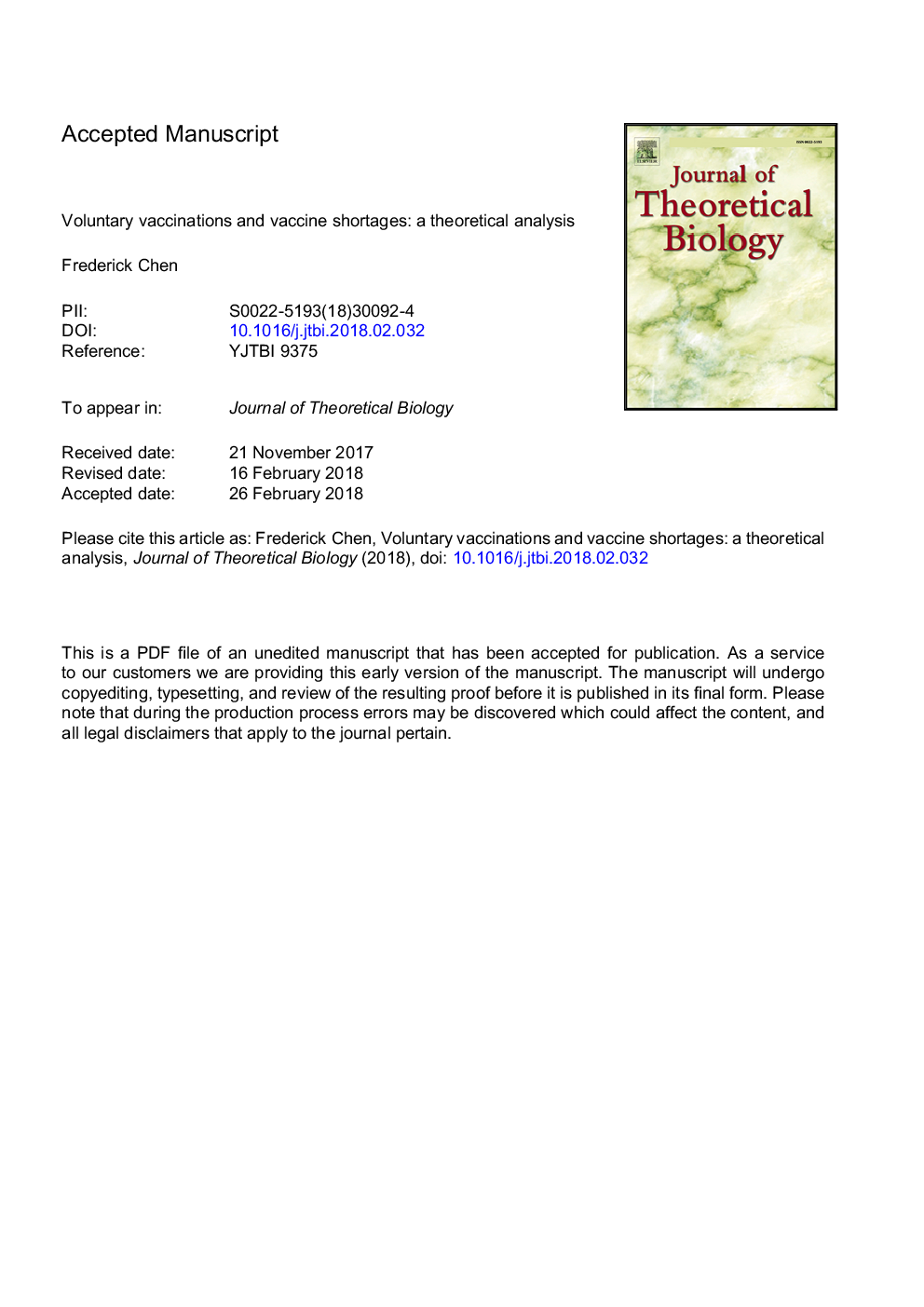ترجمه فارسی عنوان مقاله
واکسن های داوطلبانه و کمبود واکسن: یک تجزیه و تحلیل نظری
عنوان انگلیسی
Voluntary vaccinations and vaccine shortages: A theoretical analysis
| کد مقاله | سال انتشار | تعداد صفحات مقاله انگلیسی |
|---|---|---|
| 139997 | 2018 | 30 صفحه PDF |
منبع

Publisher : Elsevier - Science Direct (الزویر - ساینس دایرکت)
Journal : Journal of Theoretical Biology, Volume 446, 7 June 2018, Pages 19-32
ترجمه کلمات کلیدی
اپیدمیولوژی اقتصادی، واکسیناسیون مطلوب، واکسیناسیون تعادل، خارجی ها،
کلمات کلیدی انگلیسی
Economic epidemiology; Optimal vaccination; Equilibrium vaccination; Externalities;

